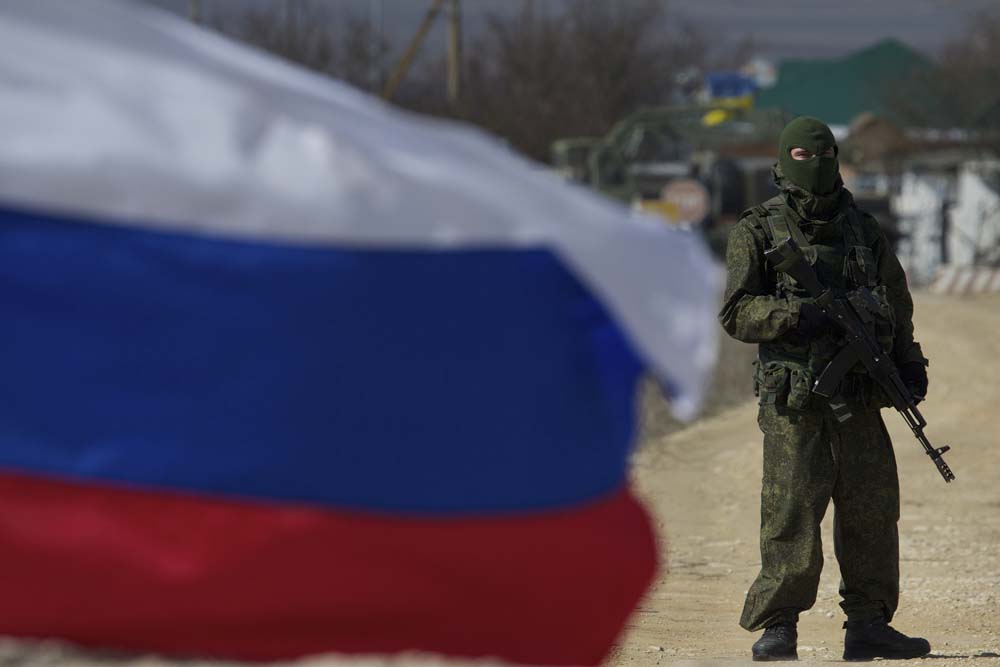Advertisement
America's Stake In The Ukrainian Crisis
ResumeWe’ll talk about what the US should do or not do about Russia’s invasion of Ukraine.

U.S. Secretary of State John Kerry is in Ukraine today. In Kiev, as Russian troops crawl over Ukraine’s Crimea and protests denounce invasion. In Washington yesterday, President Obama warned of consequences for Russia. “We are examining a whole series of steps – economic, diplomatic,” said the President, “that will isolate Russia and will have a negative impact on Russia’s economy and its status in the world.” How far should the U.S. go in brining Russia to account for events of the past week? For what may yet come? This hour On Point: What the U.S. should do, or not do, about Russia and Ukraine.
-- Tom Ashbrook
Guests
Margaret Coker, senior reporter for The Wall Street Journal. (@margaretwsj)
Indira Lakshmanan, U.S. foreign policy reporter for Bloomberg News. (@Indira_L)
David Ignatius, columnist at the Washington Post. Author of "The Director," "Bloodmoney," "The Bank of Fear" and "America and the World." (@IgnatiusPost)
Kori Schake, research fellow at the Hoover Institution.
From Tom's Reading List
Washington Post: Putin’s error in Ukraine is the kind that leads to catastrophe -- "Perhaps inevitably, given Washington’s political monomania, the big subject over the weekend wasn’t Putin’s criminal attack on Crimea but whether Obama had encouraged it by being insufficiently muscular. There are many valid criticisms to be made of Obama’s foreign policy, especially in Syria, but the notion that Putin’s attack is somehow the United States’ fault is perverse."
The Wall Street Journal: Russia Seizes Border Posts in Crimea, Says Ukraine -- "Ukraine's State Border Service said Russian forces were also massing armored military vehicles on its side of a narrow sea crossing separating the region from Russia, increasing pressure on Ukrainian forces still in the region. The movement suggested that Russia was planning to stay in Crimea for the long haul. Ukraine's newly appointed prime minister, Arseniy Yatsenyuk, said there was little chance of resolving the standoff in the short term. But he added there was no evidence that Russian forces have tried to push out of Crimea into mainland Ukraine and that he doesn't believe they plan to do so."
Bloomberg News: Cold War Ghosts Haunt East Europe in Moves for Crimea — "As Ukrainians steel themselves against a full invasion by Russian troops into Crimea and political leaders across the globe engage in marathon diplomacy with President Vladimir Putin to quell soldiers and sailors already there, people in central and eastern Europe say their mistrust of Russia is as strong as it has ever been. U.S. Secretary of State John Kerry is visiting Kiev today, the latest of politicians from the West to show support to the new government."
This program aired on March 4, 2014.